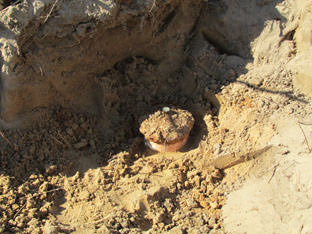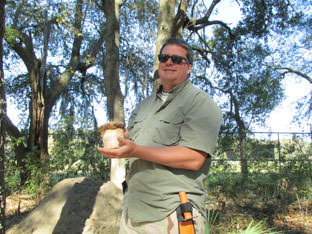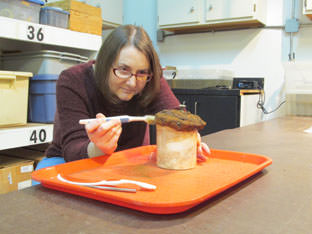Tangible Mitchelville
“In many ways, archaeology is as close to the personal stories of these people as we can get … the things we find in the ground are actual tangible evidence of what they are using and that tells their story."
Scott Butler, Archaeologist, 2013
Artifacts are objects made and/or used by people who lived in the past. Artifacts are often the only link archaeologists have to the people they wish to understand. Artifacts give archaeologists clues about what people ate, what their houses were made from, what tools they owned, how rich or poor they were, and how long ago they lived at a site. Artifacts are our most tangible connection to the past.
Although photographs, maps, and historical accounts give us glimpses of Mitchelville, they cannot tell us about day to day life in the town. Archaeologists found over 20,000 artifacts during the 2013 excavations. These objects are the remnants of the homes, household goods, foods, personal belongings, and tools owned and used by the town's residents. Fragments of china, a bead or button, the neck of a bottle, a piece of pipe, nails, a broken slate pencil, the back of a watch, a padlock, an iron spoon, all show us that the people of Mitchelville had the means and the desire to acquire consumer products. Their choices demonstrate their efforts to identify themselves as free people. Clothes, jewelry, and other everyday items express the individual personalities and collective identity of the town's residents.



Links:
www.brockington.org
www.smu.ca/academics/departments/archaeology-lab-ceramics-database.html
www.daacs.org
www.sha.org/bottle
Further Reading:
Archaeological Data Recovery at Mitchelville (38BU2301) Hilton Head Island Airport Improvements Study Area by Scott Butler, Patricia Stallings, Megan Brady, and Jeffrey Sherard
Civil War Artifacts: A Guide for the Historian by Howard Crouch
Digging for Clues by Kate Duke
Archaeology: A Brief Introduction by Brian Fagan
Archaeology for Kids: Uncovering the Mysteries of Our Past by Richard Panchyk
Method and Theory in Historical Archaeology by Stanley South
